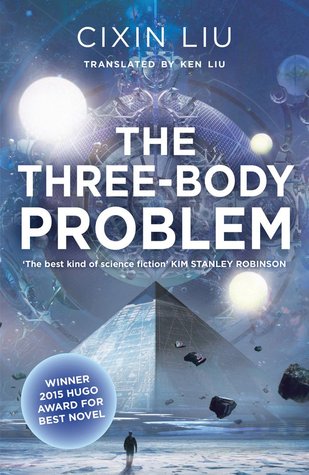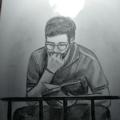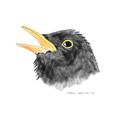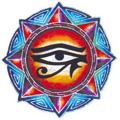Disfrutando un "nuevo clásico" de la Ciencia Ficción moderna.
5 stars
Terminado el primer libro de la trilogía. Sin aún conocer como serán el resto de libros de la saga, considero algo refrescante a lo que he leído en el género. Es un libro cuyo origen cultural es diferente al típico contexto occidental, ya que el libro fue escrito originalmente en Chino, aunque la traducción es muy buena, se nota algo en como se estructuran las ideas y las frases, entendería que a alguien le pueda resultar algo molesto pero para mi le da un valor añadido.
Esta historia empieza en la revolución cultural china, algo ya de por si, bastante interesante como occidentales, ya que la historia China no es algo a lo que aquí tengamos muchas nociones. Pero rápidamente avanza a un futuro próximo. Los demonios de la revolución cultural, como condición de partida en una acumulación de causas afectos (haciendo la analogía al problema físico al que …
Terminado el primer libro de la trilogía. Sin aún conocer como serán el resto de libros de la saga, considero algo refrescante a lo que he leído en el género. Es un libro cuyo origen cultural es diferente al típico contexto occidental, ya que el libro fue escrito originalmente en Chino, aunque la traducción es muy buena, se nota algo en como se estructuran las ideas y las frases, entendería que a alguien le pueda resultar algo molesto pero para mi le da un valor añadido.
Esta historia empieza en la revolución cultural china, algo ya de por si, bastante interesante como occidentales, ya que la historia China no es algo a lo que aquí tengamos muchas nociones. Pero rápidamente avanza a un futuro próximo. Los demonios de la revolución cultural, como condición de partida en una acumulación de causas afectos (haciendo la analogía al problema físico al que da el título a este libro) lleva a la humanidad a un futuro caótico donde se enfrentará a consecuencias impredecibles.
El libro aborda algunos de los problema clásicos de la ciencia ficción mientras desarrolla una compleja trama de investigación y misterio, sobre aparentes hechos sobrenaturales y extrañeces que están empujando a los científicos de primer nivel a la locura y la desesperación a lo largo y ancho del planeta tierra.
No es un libro perfecto, no se termina de desarrollar algunos conceptos que pone encima de la mesa y otros se simplifican, pero es un deleite poder leer referencias de física, matemáticas e incluso de computación y programación.
Con ganas de leer sus próximas partes.











